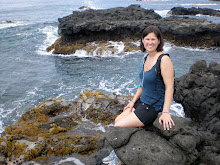I did a search for information related to obesity and food deserts. In my search using the electronic index CINAHL, I was able to refine my search several times to achieve an adequate number of results without having information overload. I used the subject headings and initial search results to further guide my use of search terms, and ultimately had 196 articles.
When I used the guideline index, I had no "hits" using any of the search terms that I used in my database search. I think this is related to my topic - I was looking for background information that might further guide research, rather than a defined clinical problem with an intervention. In fact, the problem I am looking into is one of community resources as it relates to a disease, and there are likely no guidelines for that kind of problem.
When I searched google, using the final terms of my database search, I had 831,000 "hits" - this is pretty broad! In addition, many of these results were from questionable resources (ie, www.obesitymyths.com). Google has a "google scholar" function that might be useful - for example, my research question might have relevant information in fields like sociology that may not be available in CINAHL or MEDLINE. And general Google searches might reveal information that would be helpful later (such as, what is the public perception of the problem, what are people doing to solve the problem - evidence based or otherwise, what resources are out there for this problem). I have used Google searches at work when database/guideline searches have not given me enough information. For example, a couple of weeks ago I was working with my supervisor to defend the use of a particular step in the central line dressing change, and was unable to successfully find enough information on MEDLINE or in the guidelines to justify our rationale for keeping that particular step, but a Google search led me to an FDA document highlighting the reasons behind the intervention.
So, I think that use of search strategies needs to be tempered by what the researcher needs - is it a purely nursing/allied health problem (some are), might other disciplines yield additional information regarding the problem, what are the standards in place right now surrounding the problem, what are the lay person's perceptions of the problem?
Subscribe to:
Post Comments (Atom)

No comments:
Post a Comment